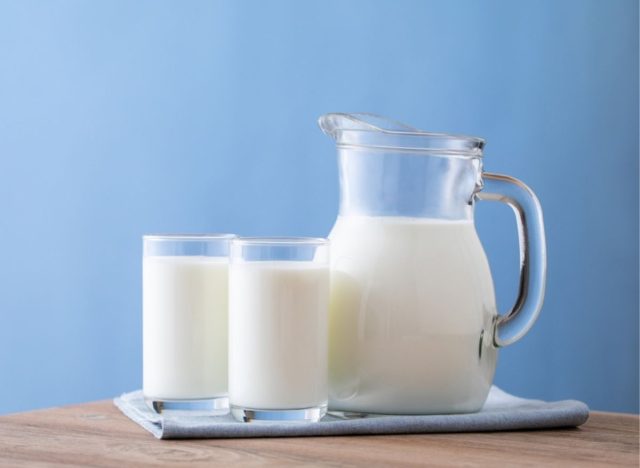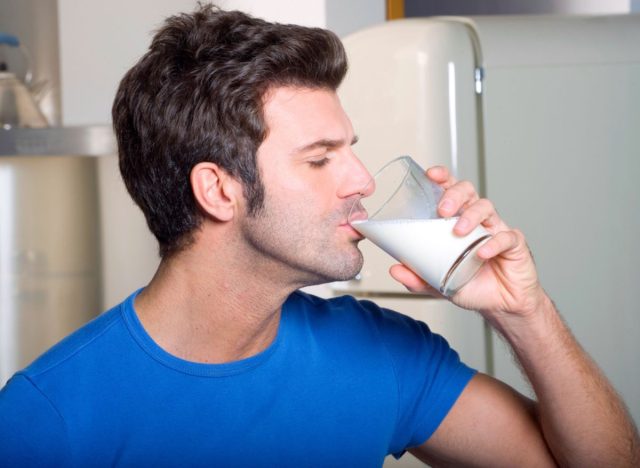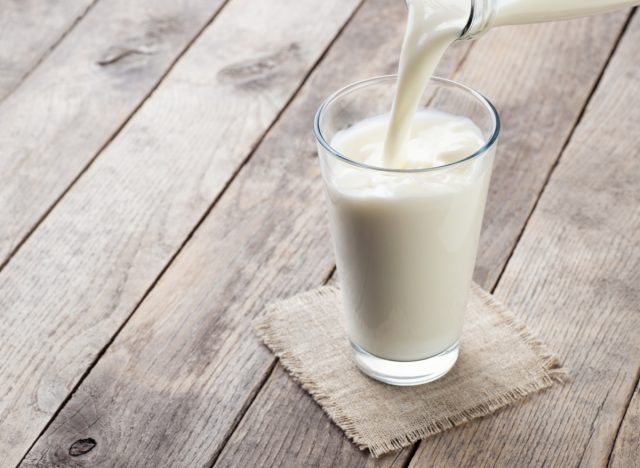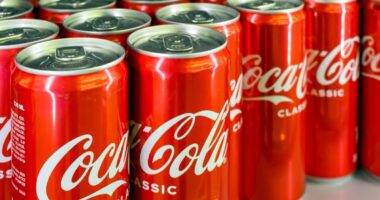You may have grown up believing that drinking a glass of dairy milk every day was great for your health. But then, over time, we began hearing more and more about the dangers of artery-clogging fat content in traditional dairy, and cow’s milk became almost passé. Meanwhile, plant-based alternatives like almond milk, oat milk, and soy milk were suddenly taking over the dairy aisle at grocery stores nationwide.
But many dietitians and medical professionals still maintain that dairy milk does provide important health benefits. We talked with Amy Goodson, MS, RD, CSSD, LD, author of The Sports Nutrition Playbook and member of our Medical Expert Board, who shared four specific reasons why she believes you don’t have to avoid dairy milk.
Read on, and for more check out 4 Best Drinking Habits to Reduce Inflammation and Slow Aging.


Although many people are fearful of drinking milk because of its fat content, it’s still important to remember that it is packed full of helpful nutrients you may not get in certain non-dairy milk options.
“When it comes down to a nutrient bang for your buck, milk excels, providing so many nutrients for an affordable price,” says Goodson. “For example, it contains 13 essential nutrients including calcium, vitamin D, potassium, B vitamins, and more! It even contains selenium, which is a strong antioxidant.”


“Dairy milk contains one gram of high-quality protein per ounce,” says Goodson. “Protein helps build lean muscle mass, repair muscle after exercise, and helps you get full faster and stay full longer after eating, and drinking milk is a convenient, affordable way to get the protein your body needs at meals and snacks.”
READ RELATED: Signs you Have a Meningococcal Disease, Say Doctors
And if you’re not a fan of just sipping on a glass of milk, you can try adding it to a smoothie or making a protein shake.


“Calcium and vitamin D are essential for bone growth, development, and maintaining bone mineral density as we age. In fact, dairy foods, like milk, are the best source of calcium in the American diet, providing approximately one-third of your daily needs.”
To Goodson’s point, a recent report published in Nutrients emphasized that dairy milk is one of the best sources of calcium for older adults in order to help slow bone loss or osteoporosis.


Lastly, if you’re in need of a quick nutrient-dense snack after a workout, incorporating dairy milk may be an excellent choice, according to Goodson.
“Milk and chocolate milk are excellent post-workout recovery beverages because they both contain carbohydrates to help replenish energy stores, high-quality protein to help repair lean muscle mass, and fluid to help with rehydration,” she says. “Plus, you can drink milk by itself, blend it into a smoothie or smoothie bowl, or use it in easy meals like overnight oats.”
Source:










